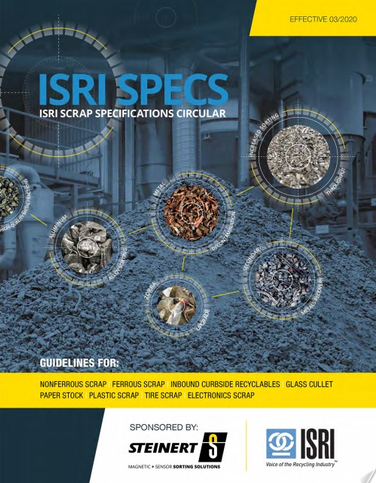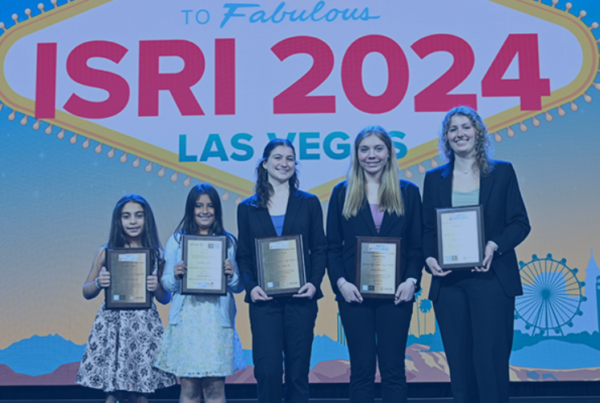An ISRI delegation traveled to Europe for the Bureau of International Recycling (BIR) 2022 World Recycling Convention and Exhibition May 23-25 in Barcelona, Spain. There, decisionmakers; traders; processors; consumers; brokers; machinery and equipment suppliers; and information technology suppliers and consultants met to discuss global challenges and opportunities in the recycling industry.
The event featured a general assembly meeting about regulatory impacts on the recycling industry. Panels throughout the week met to discuss developments in ferrous and nonferrous metals; paper; plastics; e-scrap; tires and rubber; and textiles.
Fred Fischer, ISRI’s assistant vice president for international trade, noticed one issue kept cropping up in almost every session he attended: how EU waste shipment regulations proposed in November 2021 might impact the movement of recycled commodities. “There’s overall concern on this issue from the European recycling industry across commodities,” he says.
The proposal aims to consolidate rules for shipments of waste for reuse and recycling in the EU, support the transition to a circular economy, and ensure that waste exported from the EU is managed in an environmentally sound manner in destination countries. The rules also seek to increase enforcement to limit illegal shipments of waste.
“There’s concern about what the proposal means for the global trade flow of recyclables,” says Joe Pickard, ISRI chief economist and director of commodities. Stakeholders including ISRI and BIR are concerned the proposal would create trade restrictions for recycled commodities and hinder free and fair trade.
With exports limited, more commodities would stay in Europe—where there may not be enough demand from manufacturing. In the BIR ferrous division meeting, Cinzia Vezzosi, immediate past president of the European Recycling Industries’ Confederation, noted the proposal would create an excess of almost 20 million metric tons of steel in the EU.

Stakeholders stressed the need for significant improvements to ensure the new regulation fulfils its objectives. “During the conference, BIR President Tom Bird expressed that now is the time for BIR to move the needle on this issue in terms of advocacy efforts,” Pickard says.
ISRI also intends to push back on the proposal, Fischer says. The association will submit comments on the proposed regulation in June. The EU Parliament is tentatively scheduled to vote on the draft legislation in November.
Industry awareness—improving the image of recycling for policymakers, the public, and regulatory agencies—also dominated the BIR convention. In his May 24 address to the BIR’s General Assembly, Bird discussed misconceptions facing the industry and the need to convey the essential role of recycling in protecting Earth and its environment.
ISRI members in Barcelona were engaged in raising awareness of the industry’s image. “At the opening session, ISRI [Past Chair] John Sacco stood up and expressed the importance of distinguishing recyclables from waste,” says Cheryl Coleman, ISRI vice president of sustainability. “He was very clear about the U.S. position and how these materials are managed. It helped set the tone for the follow-up conversation.”
Pickard highlighted a successful joint meeting between ISRI and BIR’s nonferrous divisions—a meeting in the works for several years. ISRI attendees included the Nonferrous Executive Committee, the chair and vice-chair of the Trade Committee, the Executive Committee, ISRI President Robin Wiener, and Pickard.
“It was a good meeting,” Pickard recalls. “We discussed areas of collaboration. We also talked about the EU waste shipment regulations, which is a major concern for nonferrous recyclers. We discussed ISRI Specifications and ways to promote the industry.” He anticipates more meetings between ISRI and BIR.
Coleman noted the convention provided the opportunity for North American recyclers to meet their global counterparts. “It’s a chance to create connections and find common threads with regards to sustainability and other issues,” she says. “We had great meetings with sister associations around the world including India, Chile, and Brazil. I think those conversations helped lay the groundwork for some great relationships.”
Barcelona also featured a bit of North American neighborliness. Tracy Shaw, president and CEO of the Canadian Association of Recycling Industries (CARI), reached out to ISRI with the intent to develop stronger ties. “We’ve got several members in both CARI and ISRI,” Coleman says. “So, we’re looking for ways to work more closely together, especially on sustainability.”
There’s a fair amount of overlap between BIR, CARI, and ISRI membership. “We have ISRI members who are also active participants in BIR,” Pickard says. Given the overlap, it’s no surprise that many of the issues facing U.S. recyclers are shared by recyclers worldwide. “Attending conferences outside of the U.S. highlight how issues we may take for granted, like free and fair trade, are more tenuous in other countries,” Fischer says. “We need to work together with these associations and advocate on these issues to maintain our common values.”
Having served in the trade world for over 25 years, Fischer says it’s critical to build relationships with international players. “I’ve found that a lot of work gets done in small meetings at these conferences,” he explains. “That’s where you can make a lot of progress, grow relationships, and come up with strategies for the short, medium, and long term.”
Photos courtesy of ISRI.












